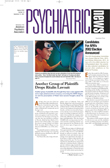University of Washington researchers have found that a single-session, individualized, preventive intervention aimed at college-aged students at high risk for problematic drinking can be effective at reducing the number of alcohol-related problems these students experience.
In addition, the effect appears to persist through the average four years the students stayed in college.
“It appears that our intervention effort is directed at a moving target—that is, drinking by college-age students is not stable over time,” said John Baer, Ph.D., an associate professor of psychology at the University of Washington and head of the study, which was funded by the National Institute of Alcoholism and Alcohol Abuse. “And it looks as if we can accelerate a trend toward decreasing drinking among high-risk students, making this program true prevention,” Baer said in a statement discussing the results.
Baer, who is also education coordinator at the National Center of Excellence in Substance Abuse Treatment and Education at the U.S. Veterans Administration Puget Sound Health Care System, and his colleagues tracked the drinking habits of more than 360 high-risk drinkers through four years of college along with those a control group randomly chosen from the incoming freshman class.
In a report of the study in the August American Journal of Public Health, the researchers explained that the high-risk students were defined as having drunk at least once in the last month and having consumed at least five or six drinks on one occasion in the last month (binge drinking), or having experienced at least three negative consequences from drinking, as defined by the Rutgers Alcohol Problem Inventory, on three to five occasions in the preceding three years.
College students on average drink more than their noncollege peers of the same age and routinely report negative consequences from both their own and others’ drinking, Baer said.
The drinking pattern among students drawn from the general student body was basically stable over time, although the control group did display a slight increase in drinking associated with turning 21, he explained. Overall, these students had few alcohol-related problems.
The brief intervention consisted of an initial baseline interview and questionnaire packet. The students were followed up at six and 12 months and then annually through the following four years. The follow-up contacts were made through the mail, with students completing the same questionnaire as at baseline. Students were paid $20 for their annual follow-up participation.
In the preventive-intervention group each student was scheduled for an individual feedback session concerning alcohol-consumption patterns. Rates of drinking for each student were compared with those of their peers, and information was included about perceived risks and benefits of drinking, myths concerning drinking behavior, the biphasic effects of alcohol, and placebo and tolerance effects.
The feedback session was styled to follow motivational interviewing techniques, being “client centered” in tone, the report pointed out, but highlighted and explored discrepancies between each student’s current behavior and his or her plans, goals, and aspirations. Each student was given a one-page list of tips for reducing the risks associated with drinking.
In addition, each student in the prevention group was mailed a summary sheet listing a comparison of their drinking habits and its consequences with the averages for the student body on their campus during their sophomore year.
Baer and his colleagues found that not only did the students in the prevention group experience a significantly greater reduction in negative consequences due to drinking, but these students were more likely to see a decrease in their alcohol-dependence symptoms.
“It does appear as though the effects of the intervention last a long time, although we don’t quite know why it persists,” Baer said. “We think this type of intervention causes people to compare their current behavior with their own internal values and standards. It helps them to examine what their choices are in their life in ways that the media and impersonal lectures do not.”
“Brief Intervention for Heavy Drinking College Students: Four-Year Follow-up and Natural History” is posted on the Web at www.ajph.org/cgi/content/abstract/91/8/1310. ▪
